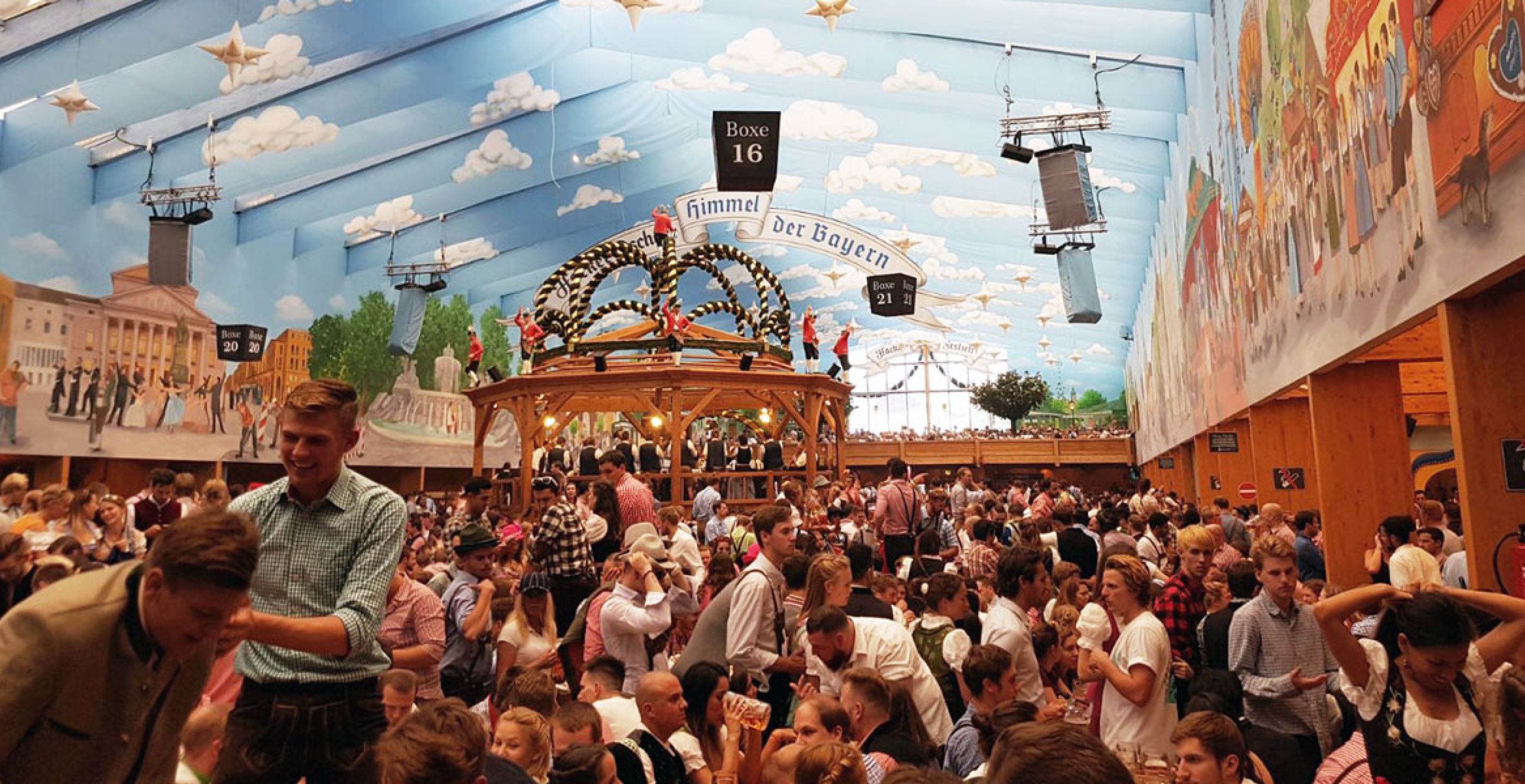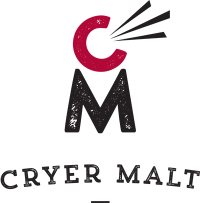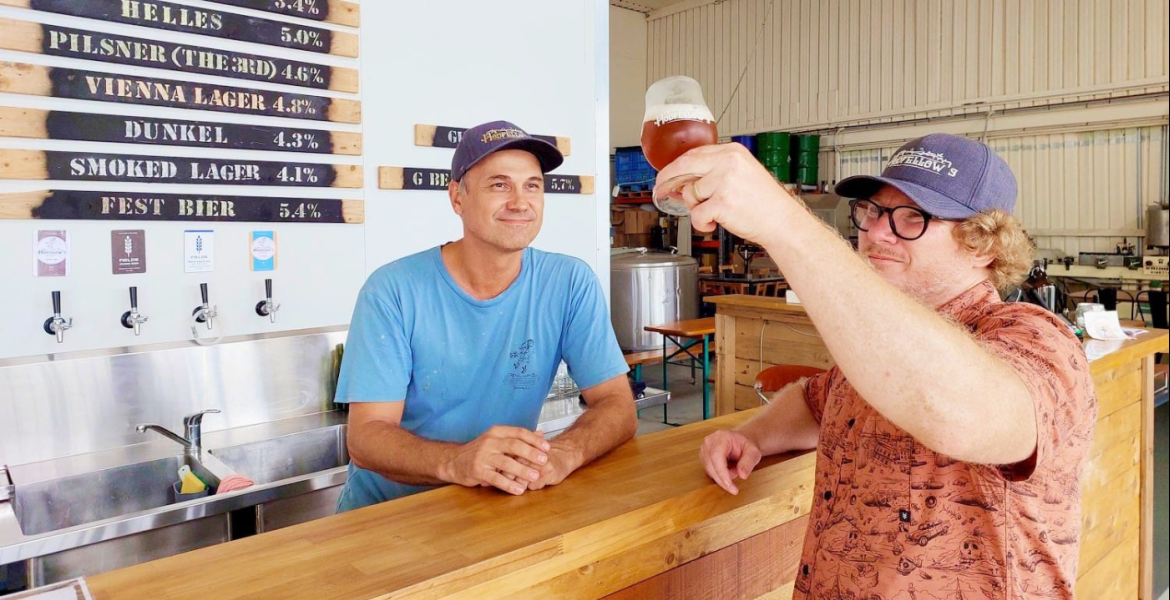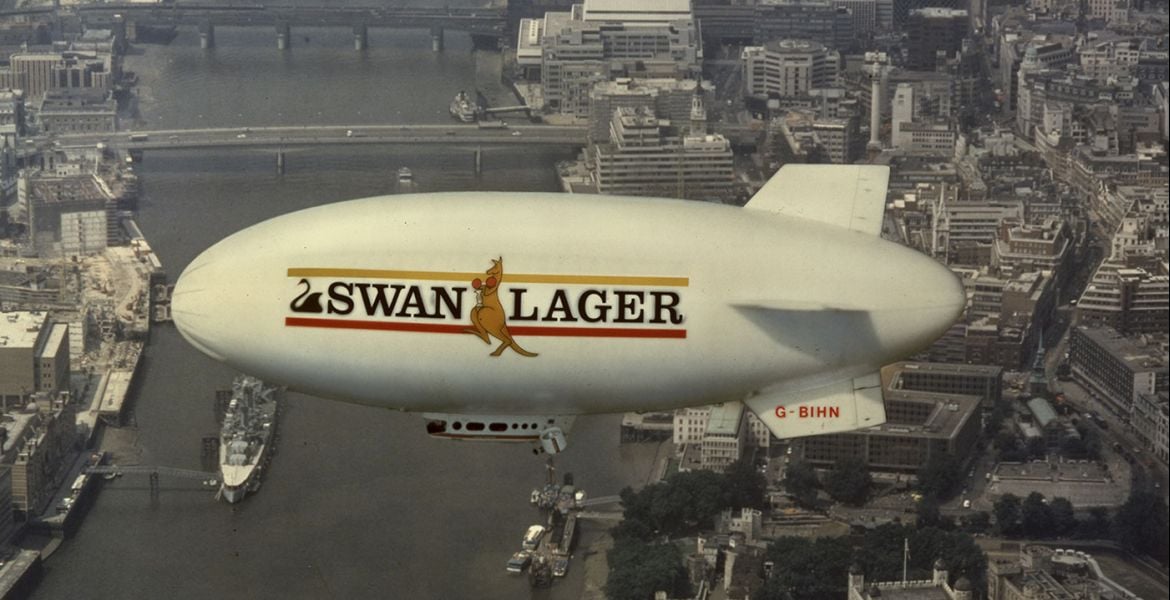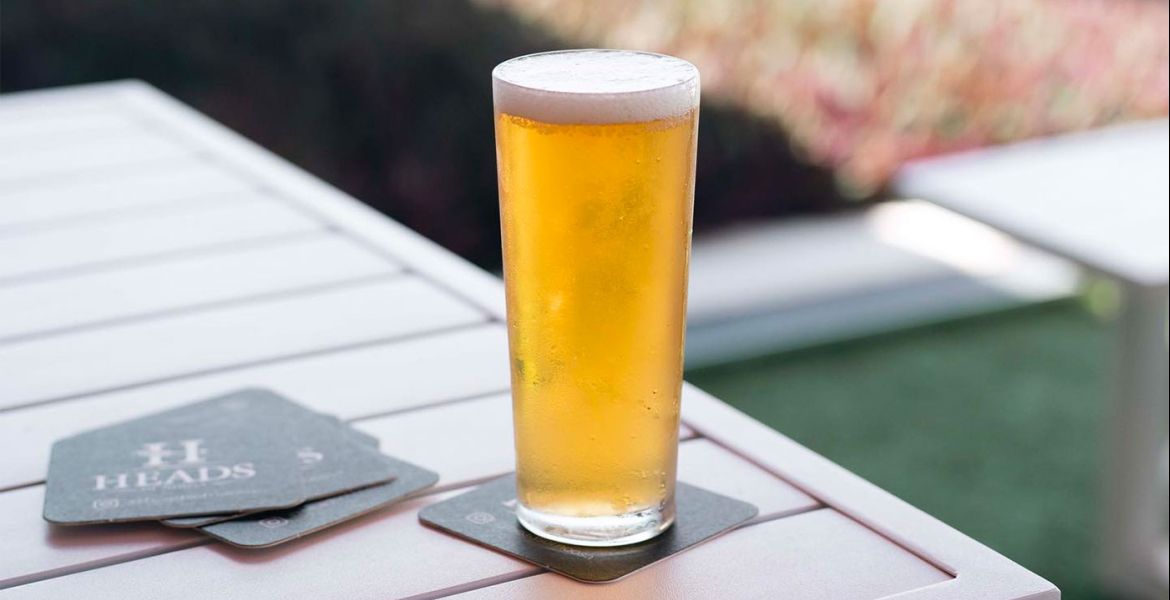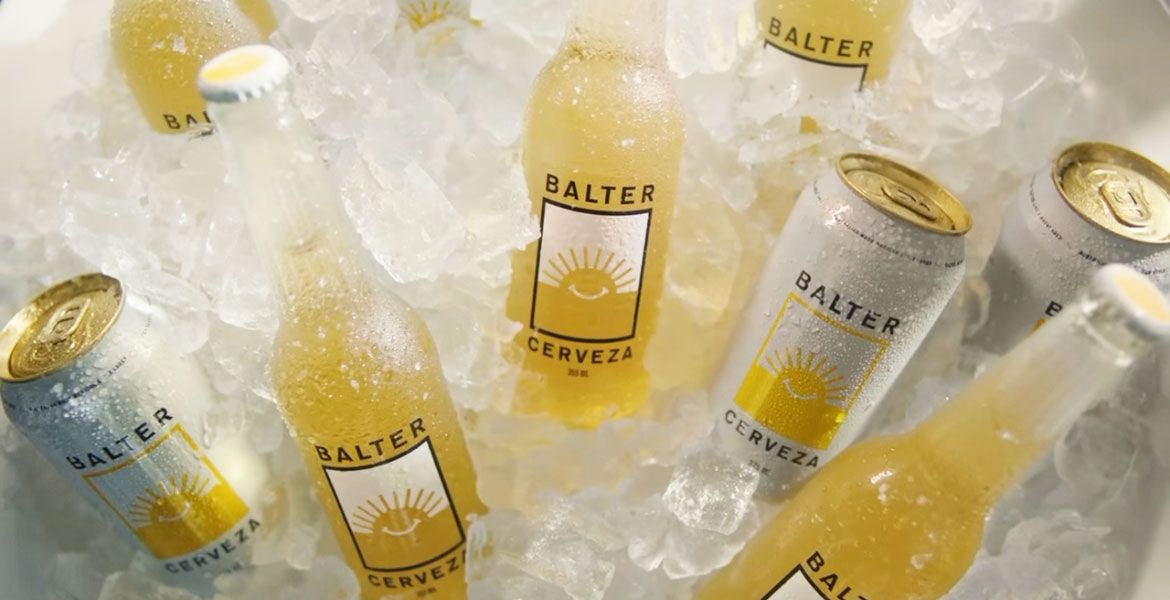There are few aspects of German culture that are as instantly recognisable the world over as Oktoberfest. In recent years, even at a distance of 15,000km from Munich, it seems every second Australian bar, bottleshop or brewery holds an event to celebrate the festival too.
Whether it’s limited Oktoberfestbiers brewed to mark the occasion or hosting a full day drinking from steins in the sun, the annual event has a clear presence in Australia. Indeed, this uniquely Bavarian folk festival has gone global, with people across the world celebrating it in one way or another in the hundreds of thousands.
Yet, while plenty of breweries and venues across the country put on respectful events, it's not hard to see potential problems with some of Oktoberfest’s contemporary incarnations; after all, one of the main drawcards is that punters get to drink out of litre steins.
What's more, while beer marketing campaigns that are seemingly designed to provoke anyone with a feminist bone in their body aren't confined to this time of year, promotions featuring young women dressed in dirndls clutching several litres of lager to their cleavage are as readily associated with Oktoberfest as they can feel out of place in the 21st century.
But, as the original Oktoberfest draws to a close in Munich this weekend (yes, it starts midway through September with the tapping of the first keg by the Mayor of Munich and runs for two weeks before closing on the first weekend of October) and thousands of us look forward to indulging in a stein or two, it’s worth looking at what Oktoberfest actually is: when and why did the festival originate, how has it come to achieve such global success and how is its appropriation the world over viewed from Bavaria?
Oktoberfest's Origins

The festival's history has its own controversy; it holds the dubious honour of being Hitler’s favourite festival and used to encourage nationalism in the lead up to the Second World War – several notches worse than falling over drunk or using breasts to promote your business. However, what the history of the festival – as well as its current incarnation – reveals is a public event that is about far more than just beer.
Oktoberfest began with a wedding. On October 12, 1810, the Crown Prince of Bavaria, Ludwig I, married Therese of Saxony-Hildburghausen and the people of Munich were invited to join their celebrations. The festivities took place over two days on the outskirts of Munich and the public field where they were held was named Theresienwiese (Therese’s Meadow) in honour of Bavaria’s new princess.
The people of Munich had such a good time at the wedding that the next year they came back to do the whole thing over again. In its second year, the festival also became a showcase for the region’s agriculture and those public parades and carnival style events that still take place today all stem from the earliest Oktoberfests.
The few days of celebration were lengthened into weeks, and the festival’s timing was brought forward to the middle of September when the days were warmer and longer. This remains the case today, although many Australian events choose to celebrate Oktoberfest long after the original has ended.
For more than 200 years, the celebrations have continued, only cancelled during times of war and emergency, such as in 1854 after a particularly nasty citywide bout of cholera.
Munich has grown significantly over the last two centuries and, while the Theresienwiese is no longer on the city’s edge, Oktoberfest still takes place in the same location. More often than not, locals and tourists alike simply refer to it as the Wiesn.
Festbier
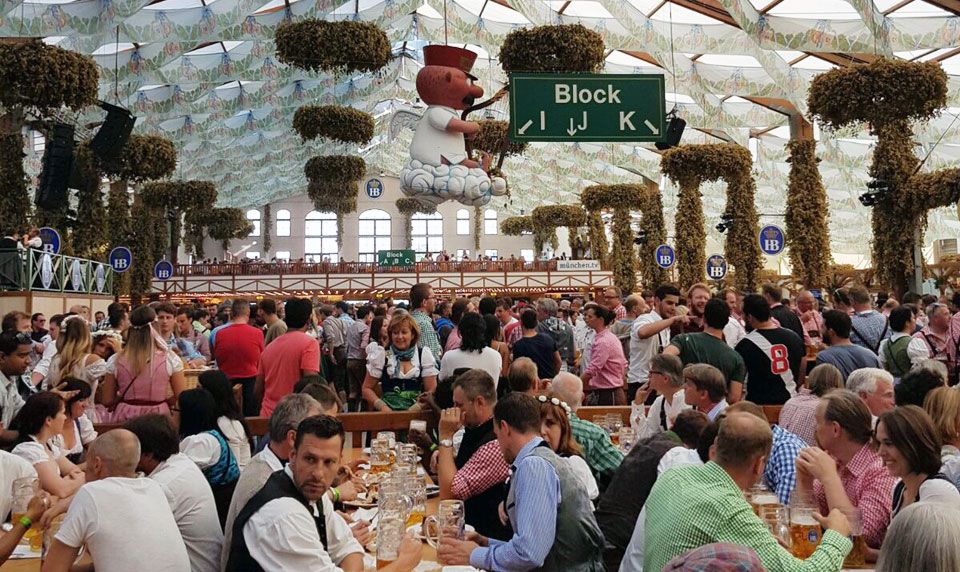
Today, Oktoberfest is the largest public fair in the world. Each year, six million people descend on the Weisn to drink well over five million litres of lager in the impressive temporary tents that are erected each year solely for the festival.
Those tents range from the family friendly to the beer focused. The Hofbräu Festhalle is probably the most notorious Oktoberfest tent, being the festival’s largest and known for its party atmosphere. It’s here that huge numbers of Australians and other nationalities meet to become Bierleiche (beer corpses) after a few too many steins.
Historically, most of the beer drunk inside these tents was Märzen, a lager that was brewed in the month of March to be stored over the German summer. This was well before refrigeration when attempts to brew beer during the hotter months resulted in fairly mixed results.
The original Märzens would have been quite dark (similar to today’s dunkels, or dark lagers) and varied significantly depending on the brewery or area they were from. In 1872, Josef Sedlmayr, a brewer at what is today Munich’s Spaten brewery, introduced a Märzen that used Vienna-style lager malts to the festival.
The amber beer was said to be a sensation at the 1872 Oktoberfest and the other Munich breweries soon followed suit. Although in the following years refrigeration would allow for beer to be made year-round, the strong connection with the traditional amber lager and Oktoberfest remained.
Over time, the popularity of industrial pale lagers surged and the Oktoberfestbiers began to change again. To keep up with the increasingly homogenised tastes of those who attended the festival, the beer transformed into the pale golden lager that is drunk today.
Importantly, there are still strict regulations over the type of beers that can be brewed for the festival. Only those six breweries which reside within the city limits of Munich, and only those beers that adhere to the Reinheitsgebot (the famed Bavarian Purity Law created in 1516) may be a part of the festival.
Protecting Tradition
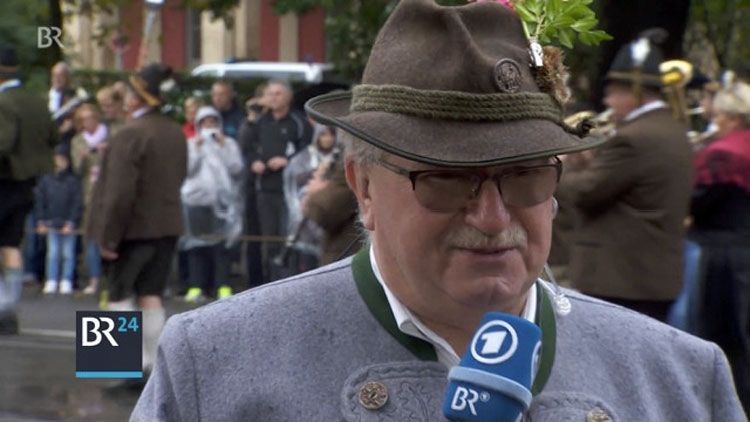
Manfred Newrzella (pictured above being interviewed by BR24) is in charge of the export department of the Bavarian Brewer’s Association and is also a key figure behind Oktoberfest. As he explains, there are strict regulations about how Oktoberfestbier is made that go beyond just the Bavarian Purity Law.
“Oktoberfestbier is its own kind of Munich beer,” says Manfred. “Only Munich breweries are allowed to produce this kind of low-fermented beer. [There is a] special regulation about the water which you have to use for the brewing [as well as] other parameters which must be strictly adhered to.”
With more than two centuries worth of history there’s clearly something to Oktoberfest’s longevity. Manfred suggests that its success goes beyond the presence of beer and is due the festival’s authenticity.
“The Oktoberfest has persisted as a real folk festival,” he says. “You can sit with good beer in a sociable round, independent from social standing, origin, race or religion.”
Today, there are genuine concerns within the festival that outsiders only see it as an excuse to drink as much lager as humanly possible. To combat this, the Munich organisers have worked hard to ensure variety within the festival remains.
“Unfortunately, the Oktoberfest is often noticed as an event for beer-drinking,” says Manfred. “However, since 2010 [we’ve also had] the so called 'Oide Wiesn', which means 'Old Oktoberfest'. There you can hear in the tents with wind music in concerto form. There are performances of national costume groups, of mountain riflemen and also folk dance. Everyone can join it.”
The Oide Wiesn exists to remind people that Oktoberfest is about more than just drinking beer. It therefore follows that those celebrations in Australia that try to promote many aspects of Bavarian tradition are probably a more accurate reflection of Oktoberfest in Munich.
Manfred suggests that problems relating to how Oktoberfest is depicted and celebrated in other countries are a broader reflection of the times we live in; it’s far easier for people to look at the more superficial aspects of the festival and not worry about any meaning behind it.
The same can be said for how Oktoberfest is celebrated in Australia. Those events that do promote excessive drinking, whether tacitly or explicitly, or display sexist advertising echo practices that exist within wider society rather than independently of it.
Yet, in today's shifting landscape – one in which many brewers and drinkers are keen to challenge people's perceptions of beer and develop a mature beer culture with respect for the drink's role throughout history – these celebrations can remind people of beer's storied past, no matter how that story might be interpreted.
A Local View
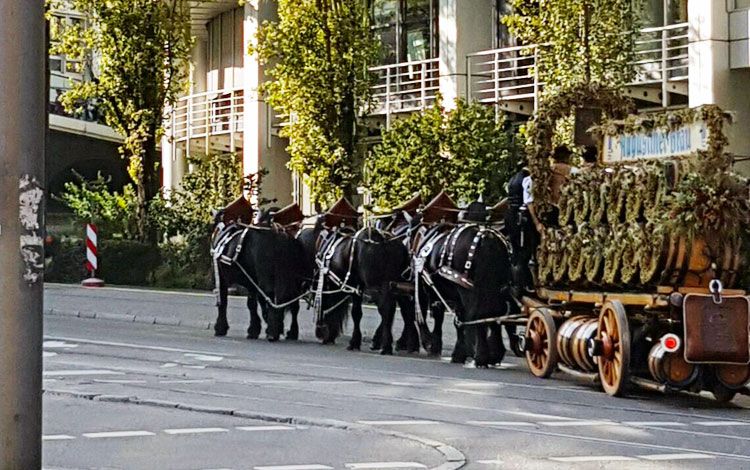
One of the longest running Australian Oktoberfests is run by Bridge Road Brewers. Founder Ben Kraus has German heritage and a German passport and has visited the original Oktoberfest several times in different guises – from 21-year-old backpacker sharing a tent with fellow Aussies to someone exploring the more traditional tents with Europeans he met while living and working in Austria. His wife, Maria, has also worked at the festival as a barmaid.
He says that you can find every form of Oktoberfest experience within the Munich extravaganza of today, from tents filled with drunken Australians, Kiwis and Italians in which you might not want to be a female alone to areas hosting people of all ages and families enjoying a more wholesome and traditional experience.
As for their Oktoberfest, which first ran in 2005, the aim has always been to celebrate the broader fest – while accepting that partying, particularly on the more boisterous Saturday session, is very much part of the deal.
"We tried to reflect the traditions here," he says. "We enjoyed lots of success from the start without advertising and were getting really good people, all smiling, and none of that festival macho-ism you can see at some Aussie beer festivals. People are there for a happy time; sure, they might end up having too many beers but when people are dressed up there's less aggro – and the dressing up is something we encourage."
Part of the tradition is the creation of a Märzen; this year's has already been lagering for nine weeks – "proper lagering time, not just smashing out a lager from a week ago and claiming it's an Oktoberfest beer," says Ben. This year it's joined by Hoptoberfest too – a dry-hopped version for those who crave a little more New World lupulin in their lives.
"That's at the core [of Oktoberfest]," says Ben. "It's about brewers."
As for the beers and breasts promotion that can creep in, he says it's more accepted in Europe.
"Europe is more liberal, if that's the right word," he says, explaining that on a recent trip to Austria and Germany he watched TV adverts that would seem comical here for their blatant use of sex to sell. "If you showed hot girls in busty outfits here you'd get laughed at; in Europe, it's more acceptable."
With a visit to Oktoberfest being almost a rite of passage for many young Australians, Ben feels it's little surprise that it's become so prominent here. What's more, the idea of getting strangers together on communal tables, as they do in the tents in Munich and his beer garden in Beechworth, is a rarity.
"A lot of Aussies go to Munich and have memorable, fun experiences, and they can relive their time in Europe," says Ben.
"The whole idea of Oktoberfest is communal tables: having a good time with people you've never met before. There will be so many people around the world that have made life long friends from meeting people at Oktoberfest."
Which, even without the special beers, fancy dress and salty bread based treats, is surely worthy of a lusty: "Prost!"

